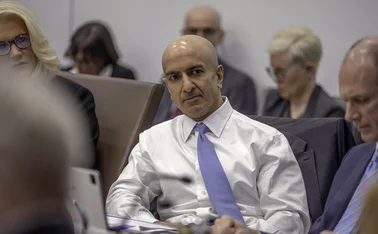
Parliament eyes Riksbank's off-mark inflation forecasts
Just one of several central banks that upended policy after forecasts proved amiss

The Riksbank's inflation projections for 2013 missed the mark by a wider degree than outside forecasters, according to a recent report that grades the bank's performance in setting monetary policy, adding to a pattern that in the past year has seen central banks misjudge central economic developments that influence policy.
The report, which serves as the basis for a yearly examination of the bank's monetary policy performance by the Swedish parliament, also notes that the Riksbank on average did
Only users who have a paid subscription or are part of a corporate subscription are able to print or copy content.
To access these options, along with all other subscription benefits, please contact info@centralbanking.com or view our subscription options here: www.centralbanking.com/subscriptions
You are currently unable to print this content. Please contact info@centralbanking.com to find out more.
You are currently unable to copy this content. Please contact info@centralbanking.com to find out more.
Copyright Infopro Digital Limited. All rights reserved.
As outlined in our terms and conditions, https://www.infopro-digital.com/terms-and-conditions/subscriptions/ (point 2.4), printing is limited to a single copy.
If you would like to purchase additional rights please email info@centralbanking.com
Copyright Infopro Digital Limited. All rights reserved.
You may share this content using our article tools. As outlined in our terms and conditions, https://www.infopro-digital.com/terms-and-conditions/subscriptions/ (clause 2.4), an Authorised User may only make one copy of the materials for their own personal use. You must also comply with the restrictions in clause 2.5.
If you would like to purchase additional rights please email info@centralbanking.com







